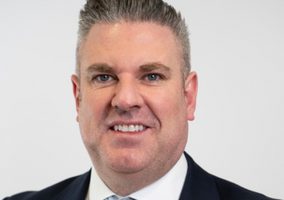The chief executive of the Charity Commission has expressed concerns about artificial intelligence (AI) applications received by the regulator.
In his opening address at the Institute of Chartered Accountants in England and Wales’ annual charity conference, David Holdsworth spoke about the key challenges and opportunities facing the sector.
Asked about the impact of AI on charities, Holdsworth told attendees that the technology could do a “huge amount of good” in the sector and within the commission.
“Looking at solutions and providing the ability to do more with less, AI does give significant advantages, even on basics like administering your charity,” he said.
“In the fundraising space, I’m aware of some of the work that’s going on as to how AI can help you tailor your engagement with your funders and draft your bids, so it’s reducing the amount of resources you may need to bid on grants, etc. It’s exciting.”
However, he added that AI also poses challenges “whilst we wait for some of the regulations to catch up”.
“We’re seeing AI applications to the Charity Commission that we know are generated by AI. Thankfully, at this stage, we can identify that.
“My concern is, as AI improves and learns, how will we be able to identify [them]?”
Commission ‘facing challenges’ on finances and resourcing
Discussing the challenges facing the commission, Holdsworth said like the sector, the regulator “isn’t immune from the current financial and fiscal position”.
“We too are facing challenges around our finances and resourcing alongside increasing demands on us as a regulator.
“It stands to reason that we’ve got very much the same challenge as charities.
“How do we balance that (reducing financial capacity and increasing demand on our services), but still maintain the services the sector needs and the public expects?”
He added that the commission is looking at how it can innovate, make the biggest impact with the resources it has and use technology to improve its capacity and enable trustees to fulfill their duties and have the biggest impact.
“Like charities, our biggest challenge in the year ahead is that balancing of resources, demand and capacity.”
‘We’re still focusing on charity banking issues’
On the banking issues affecting many charities, Holdsworth said it is “unacceptable” that charities are being denied access to banking facilities or have difficult interactions with banks and cannot operate properly.
“We’re clear as the charity regulator that it’s unacceptable and has to be dealt with, and banks and the financial regulators must sort this out,” he said.
“I’m engaging with the Financial Conduct Authority on this. We’re also engaging with politicians and those sitting on select committees.
He assured charities that the commission is “still focusing on this issue” and urged those experiencing problems to report them.
“Please do let us know when you’re having those issues because it gives us the data and ability to come at this from an evidence-led basis, and that matters when you’re engaging with parliament and asking for action.”
‘Poor governance and massive risk of fraud’
In a separate session, Alison Taylor, CEO of CAF Bank and CAF Financial Solutions Limited, discussed the challenges posed by poor charity banking and financial services.
“Banking is fundamental to the successful and safe management of charities and should be supportive, seamless and something that all of you involved in running your charity don’t have to think about,” she said.
“Yet, increasingly, that’s just not the case. A number of UK banks are failing charity customers and the poor service they’re providing is gaining increasing media coverage and industry scrutiny.”
Taylor said one of the worst things “is seeing some of the outcomes of the workarounds that charity staff and trustees have perfectly understandably tried to make to navigate the banking problems they’re having”.
“We see many holding cash which is then not secure. We see people using their personal accounts or other accounts, sometimes even partner accounts, to try and navigate the fact that their account is frozen or blocked for a period.
“Whilst all of that is understandable and driven by trustees, volunteers or staff just trying to do the right thing and enable their charity to operate, it results in poor governance and massive risk of fraud, theft or other financial loss.
“This is what we’re concerned about and what we would want to seek to address.”
Related articles












